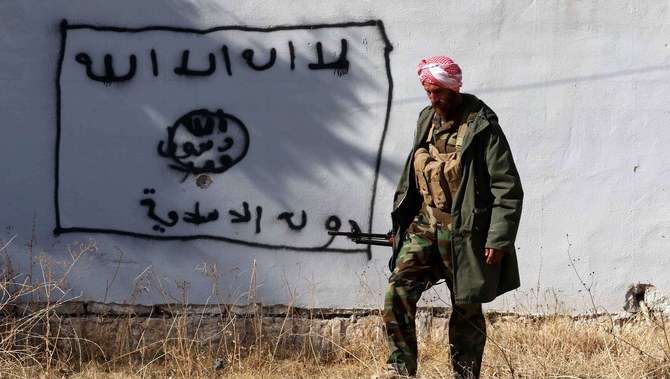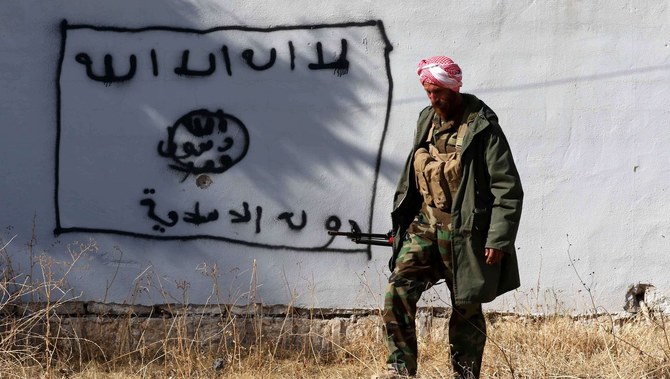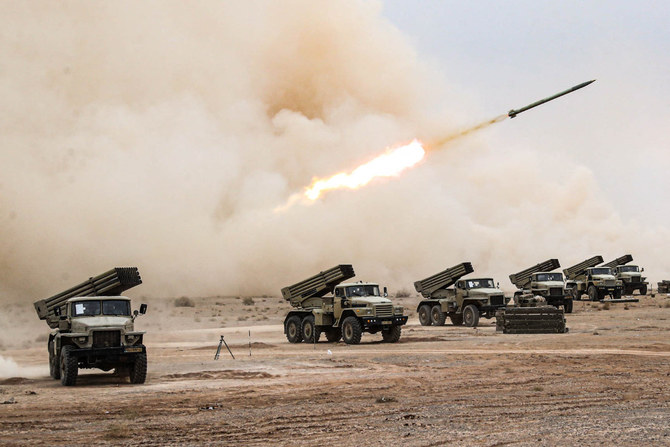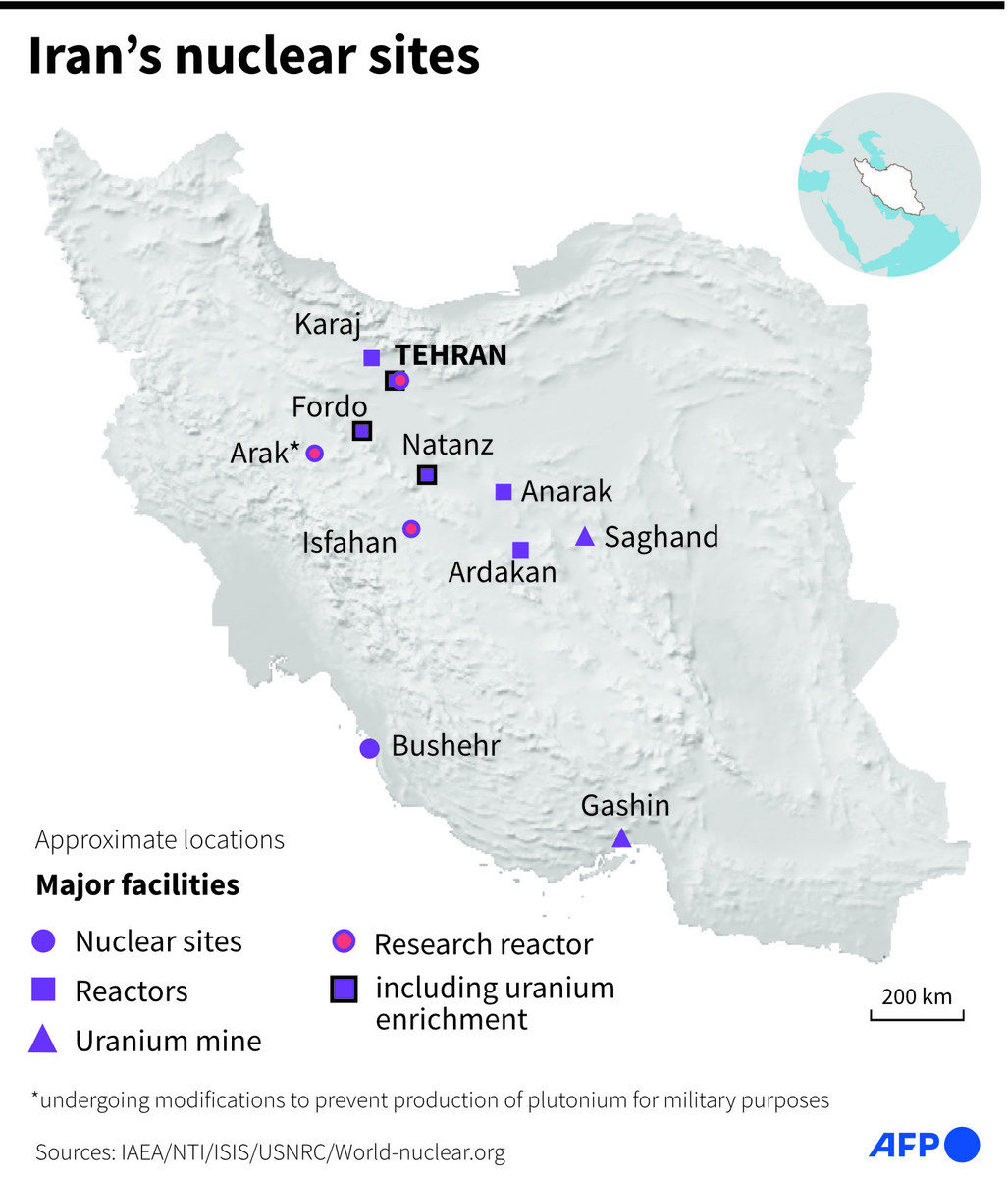IRBIL, Iraqi Kurdistan: An uptick in attacks in Iraq by suspected Daesh militants since the beginning of this year is stoking fears that the militant outfit is regrouping and could again threaten the country’s stability.
On May 28, Daesh spokesperson Abu Hamza Al-Qurayshi released a recording on the messaging app Telegram, saying that the terror group’s fighters will “start to increase their attacks against the Crusaders since the US has withdrawn from Iraq.”
“Greater punishment against Crusaders is coming once the caliphate achieves the victory and is established once again,” Al-Qurayshi said, according to the Iraqi Kurdish news agency Rudaw.
Earlier in May, hundreds of acres of wheat and barley cropland in Iraq’s disputed Kirkuk province went up in flames.
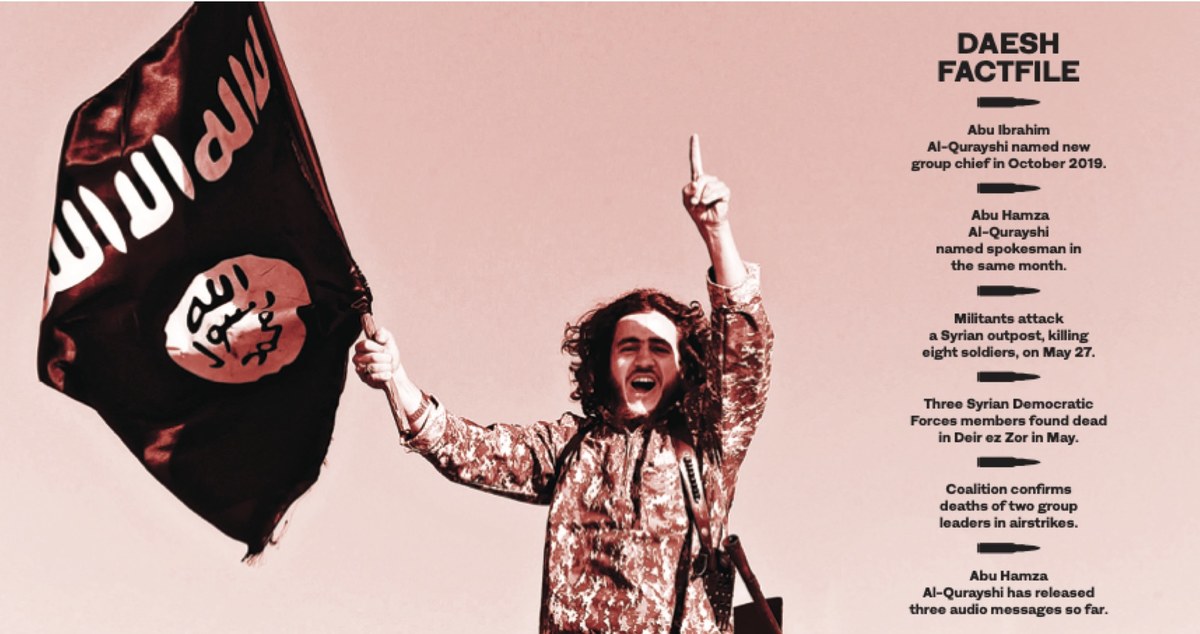
Daesh claimed responsibility for some of the fires. Around the same time, it released a propaganda video vowing to free fellow members from Iraqi jails.
Since 2017, Daesh has taken advantage of security gaps in disputed regions between Iraq and the autonomous Kurdistan region, terrorizing and extorting locals, and mounting hit-and-run attacks against Iraqi and Kurdish forces.
Citing the US Central Command, the most recent Pentagon Inspector General report, which covers the period from Jan. 1 to March 31, warned that Daesh is “regrouping and reforming” in the mountains of Makhmur in northern Iraq, which is inside the disputed territories between Iraq and the Kurdistan region.

Since 2017, Daesh has taken advantage of security gaps in disputed regions between Iraq and the autonomous Kurdistan region, terrorizing and extorting locals, and mounting hit-and-run attacks against Iraqi and Kurdish forces. (Alamy)
According to the report, the US also expects Daesh “to seek to re-establish governance in northern and western areas of Iraq.”
On May 17 the Iraqi military launched an operation to force Daesh out of its sanctuaries. However, if past efforts of this kind are any indication, it is unlikely to inflict long-lasting damage on the group.
Since 2017, Daesh has reverted to the role of lethal non-state actor — as it was before it conquered one-third of northern Iraq in June 2014 and declared the establishment of a “caliphate.”
“Daesh has posed a threat to Iraq, in its various forms, since 2003 and will continue to do so for the foreseeable future,” Michael Knights, a military and security affairs specialist at the Washington Institute for Near East Policy, told Arab News.
“It is now part of the Iraqi landscape, like a resilient weed or virus.”

Since 2017, Daesh has taken advantage of security gaps in disputed regions between Iraq and the autonomous Kurdistan region, terrorizing and extorting locals, and mounting hit-and-run attacks against Iraqi and Kurdish forces. (Alamy)
Knights and Alex Almeida, who monitor Daesh’s activities, have detected a 13 percent increase in the militants’ attacks in Iraq this year over the previous year — at least 566 in the first three months of 2020, compared with 1,669 during the entire 2019.
According to Knights, Daesh is again using strategies that worked in the past, including jailbreaks and extorting farmers by threatening to burn their crops.
“In terms of attack metrics, Daesh is back to 2012 levels, but is still only a third of 2013 levels, and it will take more than a year of growth at the current rate to reach 2013 levels of attacks,” he said.
“Also, the insurgency is different at a qualitative level. Today’s Daesh is not really present in the cities, and so far they have turned away from mass-casualty attacks on civilians.”
Nevertheless, the group still poses a threat after transferring its strength from Syria back into Iraq over the past 12-18 months.
Opinion
This section contains relevant reference points, placed in (Opinion field)
“The movement is still very weak compared with its old self in 2017 or 2013, but it is recovering slowly,” Knights said.
He said that if Iraqi and Kurdish forces fail to cooperate quickly, then Daesh “will soon be able to control small villages and rural areas in daylight, and parts of towns at night.”
However, Thomas Abi-Hanna, a global security analyst with US-based geopolitical intelligence platform Stratfor, believes Daesh is a long way from being able to capture and control large swathes of territory as it did in 2014.
The group’s activities today more closely resemble those of the 2011-12 period.
“Iraq’s latest offensive against Daesh is unlikely to have a long-term impact on the group’s trajectory,” Abi-Hanna told Arab News.

Since 2017, Daesh has taken advantage of security gaps in disputed regions between Iraq and the autonomous Kurdistan region, terrorizing and extorting locals, and mounting hit-and-run attacks against Iraqi and Kurdish forces. (Alamy)
“Iraqi security forces are riddled with weaknesses and are unable to firmly hold and control the rural areas where Daesh operates,” he said.
As a result, Daesh is “well positioned” to threaten Iraq and Syria for years to come since it still has thousands of fighters and hundreds of millions of dollars at its disposal.
“While Daesh is not on the verge of being able to seize territory, attacks and other operations the group has launched will threaten civilians and security forces, damage crops and infrastructure, hurt Iraq’s already ailing economy and undermine stability in the country,” Abi-Hanna said.
He believes the surge in attacks is a sign of Daesh’s renewed strength, especially in light of partial coalition military drawdowns from areas where the group is active, Iraq’s internal political crises and the coronavirus pandemic that is consuming most of Baghdad’s attention.
“The attacks are becoming increasingly sophisticated. The group has recently been conducting night-time raids, multi-pronged coordinated assaults and suicide bombings, marking a notable uptick from the typical drive-by shootings, mortar attacks and roadside improvised explosive devices (IEDs) it had done in previous months,” Abi-Hanna said.

Since 2017, Daesh has taken advantage of security gaps in disputed regions between Iraq and the autonomous Kurdistan region, terrorizing and extorting locals, and mounting hit-and-run attacks against Iraqi and Kurdish forces. (Alamy)
Joel Wing, author of the “Musings on Iraq” blog, said that Daesh released a video in May announcing that it was launching a new campaign in Iraq. This followed statements in March by the group vowing to exploit the pandemic.
“The uptick in attacks actually began in April and continued into May, marking the first time Daesh has had two months of increased operations since January-February, 2019,” Wing told Arab News.
“The second week of May had the most incidents since the third week of October 2018, showing renewed strength,” he said.
Since Haider Al-Abadi, the-then prime minister, declared victory over Daesh in Iraq in December 2017, five months after government forces ejected its fighters from Mosul, the group has “focused on preserving its leadership and rebuilding its cadres.”
As a result, Iraq suffered the lowest number of attacks since the Iraq War that began in 2003.
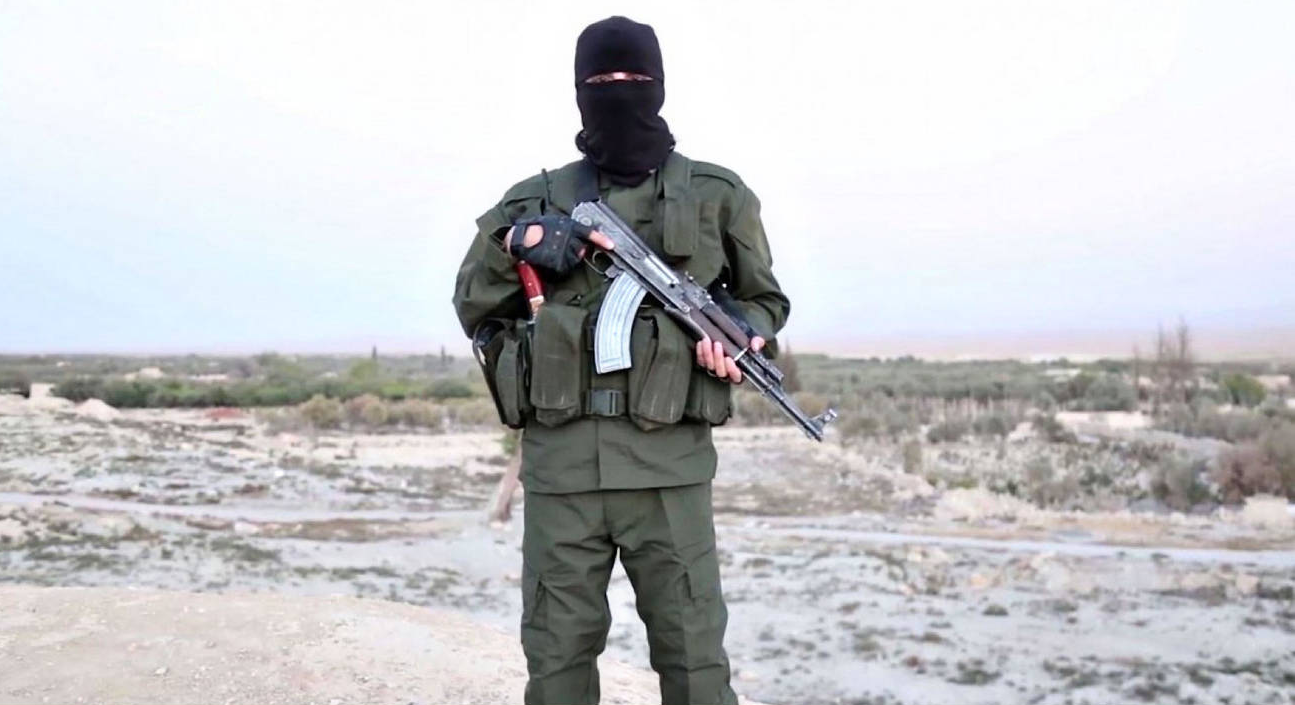
Since 2017, Daesh has taken advantage of security gaps in disputed regions between Iraq and the autonomous Kurdistan region, terrorizing and extorting locals, and mounting hit-and-run attacks against Iraqi and Kurdish forces. (Alamy)
Now, however, Daesh “appears to be flexing some of its new muscle,” Wing said.
He said that the present Daesh campaign differs from previous manifestations since the group is now “a completely rural phenomenon.”
“It has virtually no cells operating in cities carrying out attacks,” he said. “There is not a continuous wave of car bombs that it once carried out or even suicide bombers.”
Wing said that Daesh’s present campaign appears to be aimed at “establishing military control over the countryside, driving people out of rural villages via threats, attacks, burning crops and so forth, so that they might be converted into bases and training camps, and threatening others to pay taxes.”
It is yet to be seen if Daesh can sustain this campaign or whether attacks will decline in a few weeks.
“Either way it will be a sign of how much the group has been able to rebuild so far,” Wing said.
------------------------


